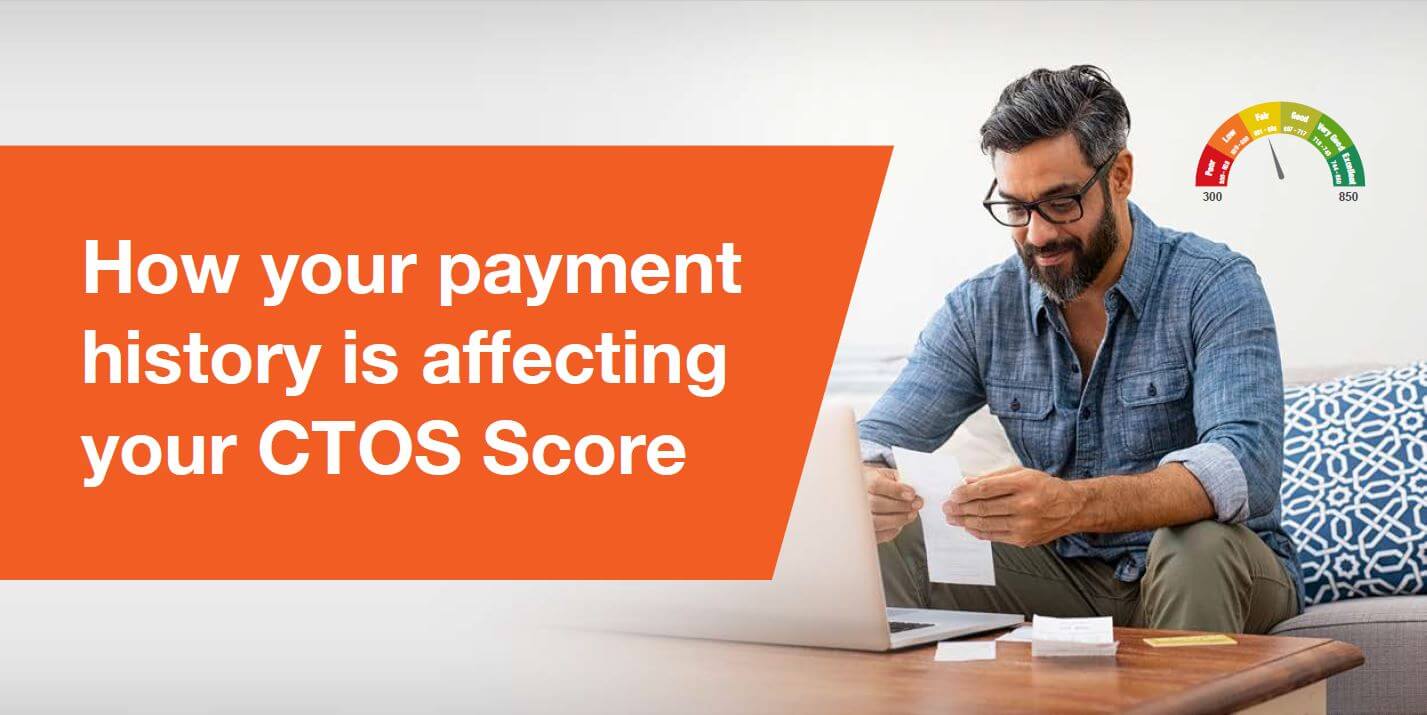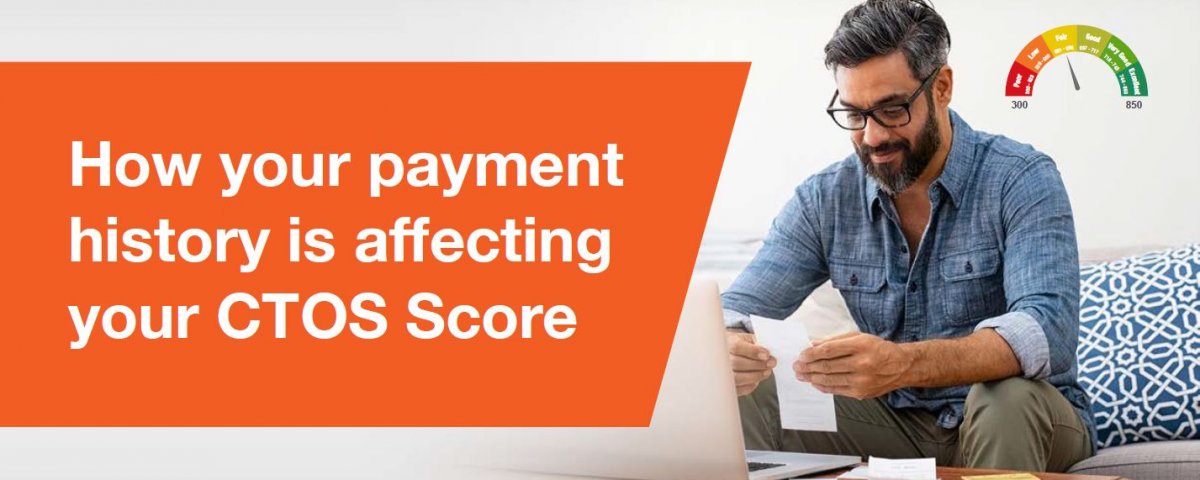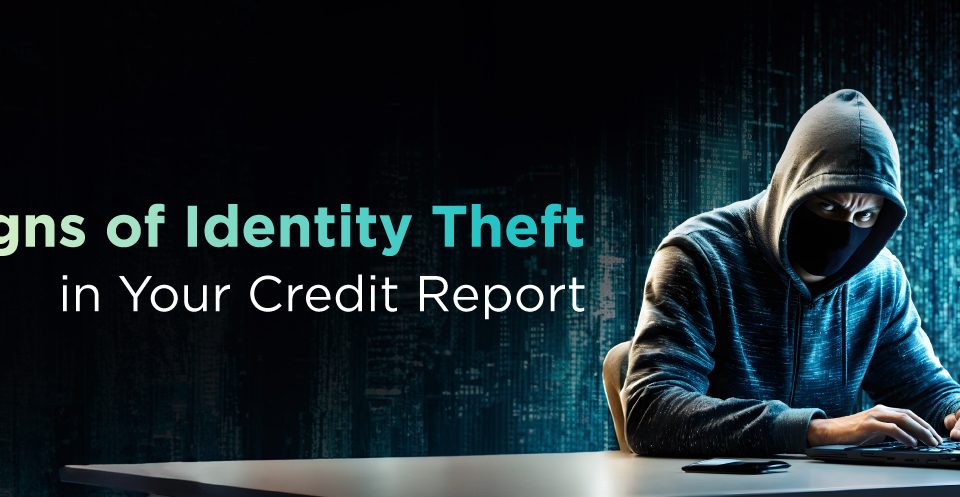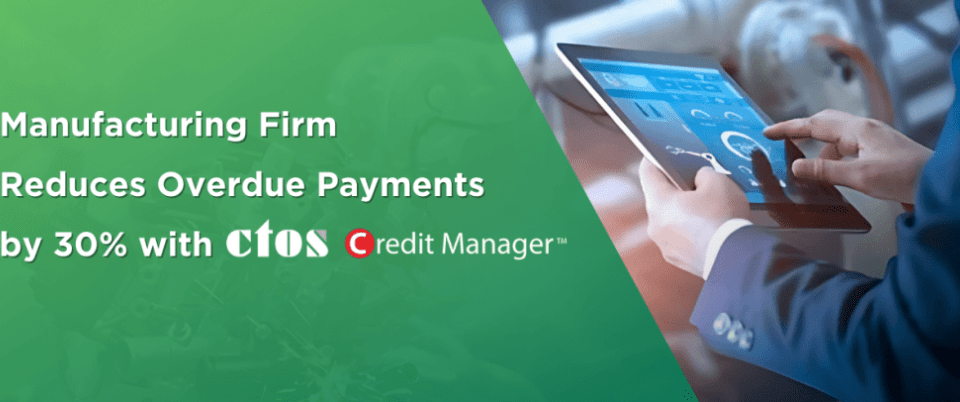
Payment history is the record of payments on your debts and credit obligations, including on-time, late, and even missed payments. Ever wondered how important payment history is to your credit score? The short answer is: very. In fact, it determines 45% of your CTOS Score!
A few late payments will not automatically ‘destroy’ your credit score. A good overall credit history can outweigh one or two occurrences of late payments. However, your payment history is just one piece of information used in calculating your credit score.
Payment history – 45% of your CTOS Score
The most important component of your credit score looks at whether you can be trusted to repay money that is lent to you. This component of your score considers the following factors:
- Have you paid your bills on time for each account on your credit report? Paying bills late has a negative effect on your score.
- If you’ve paid late, how late were you – 30 days, 60 days or more than 90 days? The later you are, the worse it is for your score.
- Have any of your accounts gone to collections? This is a red flag to potential lenders that you might not pay them back.
- Do you have any debt settlements, bankruptcies, foreclosures, legal suits or judgements against you? These are some of the worst things to have on your credit report from a lender’s perspective.
To summarise, here’s what’s included in your payment history:
Account payments: Payment history of credit cards, personal loans, car loans and housing loans.
On-time payments: The number of accounts you have without late payments which will help improve your credit score.
Negative information: Public records such as bankruptcies or lawsuits, collections and delinquencies. Learn more about how long a bankruptcy record will remain in your credit report.

Tips to improve your payment history and CTOS Score
Pay your bills on time. Try to pay your bills on time every month. If using a credit card, try to make the minimum payment for each month if you cannot afford to pay the entire sum. Missing your payments, even for just a month or two, will show up in your credit report. It’s okay if you’ve missed payments in the past – just get current, and stay current.
Keep amounts owed low. Keep your debt balances low, and instil the habit of paying your debts off regularly so that the amounts owed get less, steadily. Maintaining discipline in your payment behaviour will ensure that your debts decrease over time. Also, when applying for loans, don’t ask for more than you really need. Remember at the end of the day, any amount you request for a loan will incur interest and still needs to be paid back.
Re-establish your credit history if you’ve had problems. It’s crucial to fix your credit history, especially if you’ve had issues with it. Ignoring or pushing the problem away will just cause more issues in the long run. Meanwhile, don’t take drastic measures, such as quickly closing numerous unused credit cards, opening many new ones or opening many new accounts. If you’re facing difficulties managing your credit health, see a good credit counsellor or financial services advisor for guidance and to know what first steps you should take.
Check your MyCTOS Score report. To stay on top of your credit health, remember to check your full credit report regularly. This way, you’ll be able to see if there are any issues that need taking care of when it comes to your finances, and make early plans on how to address them.




